- Treatments
- Venus Versa Treatments
- Hair Reduction Treatment
Hair Reduction with the Venus Versa
Unwanted hair or excessive hair growth is an issue that is experienced by both men and women alike. There are many reasons why people seek to reduce this unwanted hair, whether that be for cosmetic, sporting or medical reasons.
What is Hair Reduction with the Venus Versa?
The Versa Versa IPL system is a long-term hair reduction solution that is suitable for those who want to benefit from smooth skin whilst avoiding the inconvenience and hassle of regular conventional hair removal.
IPL will also eliminate irritation and painful ingrown hairs associated with waxing, shaving, epilating and depilatory creams.
While nearly everyone has hair on the face and body, certain individuals might naturally have, or develop more hair than others, whether because of genetic predisposition (meaning their parents might have more hair on the face or body), ancestry (for example, people who are Mediterranean), or as a result of a medical condition, such as hirsutism or lanugo. The latter can be caused by a higher natural presence of hormones known as androgens, but it can also be a side effect of medication.
If you’re a woman suffering with hirsutism, it is important to be checked out by a doctor, especially if the onset happens quite rapidly, since the development of excess body hair can be a symptom of a more serious condition that you’ll need to rule out before undergoing treatment to remove the hair. Your GP is a good place to start if you need to get a diagnosis, and sometimes, a GP might make a referral to an endocrinologist (a specialist in hormonal disorders), or to a dermatologist.
Hirsutism can also be a side-effect caused by certain medications, especially those that affect the production of hormones – for example some birth control medications, or tablets for endometriosis. Additionally, if a partner is using topical treatments for hair loss that include androgens (for example, Rogaine or Minoxidil) it is possible that these can transfer through skin-to-skin contact, stimulating hair growth.
If you have excess unwanted hair, you’re not alone – many people suffer with hirsutism. While permanent hair removal treatments are not essential for every person, for many, they can be life-changing, in helping patients to remove the problem, restore their confidence and better match how they feel on the inside with their outward appearance.
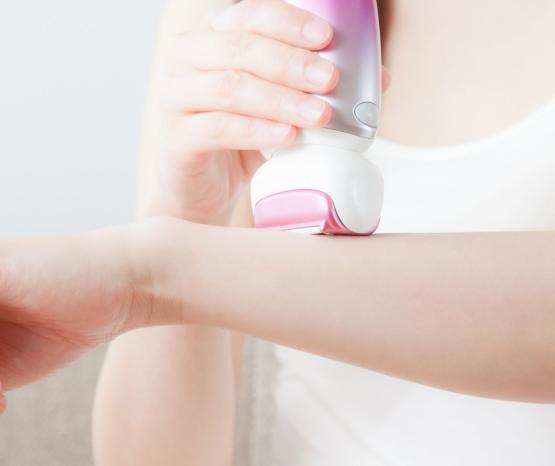

In some people a soft, downy hair called lanugo can develop, and it may be pigmented or unpigmented. Lanugo is the first type of hair that ever grows from hair follicles, and it develops in foetuses in utero around the fourth or fifth month of pregnancy, to help protect the baby’s skin. Although it has usually shed by the time a baby is born, sometimes it is present at birth. When this happens, it is normally found everywhere on a baby’s body, except on the palms, lips, and soles of the feet, which do not produce hair. Lanugo does not develop in adults, except in instances where they have become malnourished, and then it develops as a protective mechanism. In people who have had severe restrictions on the nutrients they can absorb; or who have suffered with eating disorders (such as anorexia nervosa or bulimia), lanugo can develop to enable a body with insufficient fat to better insulate itself.
Just as it would be essential to see a GP to rule out any other medical issues causing excess hair growth, if lanugo has developed as a result of an eating disorder or malnutrition, any treatment would begin with identifying and treating the underlying health condition before proceeding with hair removal.
Whatever the cause of excess hair, and wherever it is on the body, it can be a source of distress or embarrassment, and have a significant negative impact on self-esteem. In some people, the effects of excess hair can even result in depression – especially when people have often tried many expensive treatments with no results – or if treatments have made the problem worse.
A course of between 6 to 10 sessions are typically needed to achieve the desired results with IPL. The number of sessions will depend on the individual patient, and the texture and colour of the hair being removed.
What are the treatment options for hair reduction with the Venus Versa?
At Derma, we offer the gold standard of dermatological treatment – meaning every treatment we provide is state-of-the-art and backed by scientific evidence.
This is why we’ve chosen to offer treatment to remove unwanted hair with the Venus Versa – the very best in cutting edge technology.
There are two options for hair removal, treatment with a diode laser, or Intense Pulsed Light, also known as IPL. Laser is a monochromatic coherent light source, whereas IPL is a broadband pulsed light source. At Derma, our Venus Versa technology only offers IPL hair removal, which targets the pigment under the skin's surface.
When performed by a qualified practitioner, each treatment can be used to target the melanin in the hair, which provides the colour of the hair and is present in the hair follicle, and this process is performed over the course of multiple sessions in order to permanently remove hair.
While hair removal treatment with the Venus Versa can have a significant positive impact on a person’s self-confidence, it is not suitable for everyone. This is why before undergoing any treatment, it is essential to first have a consultation with the dermatologist, whose expertise in the medical treatment of the skin can best determine whether it will be suitable and effective, and who can identify how many sessions you will likely need in order to attain the desired outcome.
What is the Benefit of Hair Reduction with the Venus Versa?
Hair removal with the Venus Versa is performed by highly-trained practitioners who are overseen by dermatologists, so you can rest assured that your treatment is being delivered by the safest hands.
Treatment can be performed by an expert practitioner on multiple areas of the body, so patients can be reassured that no matter where the problem is, they don’t have to feel embarrassed, and there is a good chance that their unwanted hair can be treated.
There is no downtime, and treatment can often be performed in as little as 15-30 minutes, depending on the area being treated (larger areas, such as treating both full legs would take longer – usually around 60 minutes.) An appointment can often be carried out during a lunch break.
Who is Hair Reduction with the Venus Versa Suitable For?
Patients wishing to treat areas of unwanted hair would be potential candidates, however not all patients are medically suitable for treatment; or they may have to wait before they can safely undergo the procedure.
Those who might not be suitable for treatment using IPL include people;
The treatment is most effective with darker hair on lighter skin tones.
Any aesthetic treatment such as anti-wrinkle injections or dermal fillers must have appropriately settled before hair removal treatment with the Venus Versa would be suitable. You can discuss this confidentially in consultation with our trained dermatology nurses so that you can plan ahead.
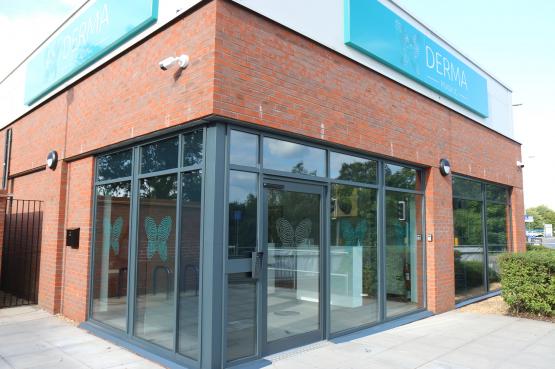
What is the Process of Hair Reduction with the Venus Versa?
To determine whether you are a suitable candidate for treatment, it is recommended that you book in for a consultation with the dermatology nurse, who will take your medical history and examine the area to be treated. They will advise on the best course of treatment.
If it is appropriate to have IPL hair removal with the Venus Versa, then the nurse will explain all of the potential side-effects, to enable you to decide whether it is the right treatment option for you. You can take time to consider this – you don’t have to decide on the spot. If it is suitable to proceed, and you meet the criteria to have the treatment performed, you may be able to have the patch test performed that day.
For the Venus Versa IPL hair removal treatment, a patch test is carried out to ensure that your skin reacts as expected to the treatment without any adverse effects. This involves a pulse of the Intense Pulsed Light to be delivered to a small patch of skin in the area to be treated. The spot test is performed at least 24 or 48 hours (depending on skin type) before the full treatment can be carried out.
Prior to undergoing hair removal treatment, you may need to prepare, and if you are taking certain medications, or have underlying medical conditions, your dermatologist will advise you of any special considerations prior to your appointment.
The area to be treated will need to be clean, so you cannot use any makeup, creams or lotions beforehand, so you may want to keep that in mind when planning your day. Before the treatment, you will need to shave the area to be treated so that the treatment can work optimally.
After the patch test, for the actual treatment, you will be asked to lie down comfortably on a couch, and the expertly-trained practitioner will pass the device over the area to be treated.
Whilst this Venus Versa IPL treatment is not considered painful, you may feel some heat with a light elastic snap on the surface of the skin, and doesn’t normally require any anaesthetic beforehand. The Venus Versa is equipped with a real-time cooling system that kicks in right away to help minimize discomfort. Some areas might be more sensitive than others – for example, the upper lip – so if it is a little intense during your first treatment, you can let the practitioner know, and they can adjust the intensity to make you more comfortable during the process.
You will be given follow-up care instructions on what to expect and what to avoid after your treatment, and it is important to follow these instructions to the letter.
Usually, you can leave the clinic straight away after, as there is no downtime. You are able to use products on your skin straight away and you will be given advice about which creams to use to protect your skin.
IPL hair removal treatment usually requires 6-10 sessions, but the exact number of sessions can vary depending on the individual patient and their hair colour as well as hair texture.
What are the Risks and Complications of Hair Reduction with the Venus Versa?
Although the Venus Versa IPL treatment is relatively low risk it is possible to have minor complications such as mild tenderness or swelling in the areas that have been treated. If complications occur, follow your aftercare instructions, and the clinic will be able to recommend a prescription antibiotic cream if necessary. Never use any treatment other than what the dermatologist has advised if you have complications.
If you have underlying medical conditions, or are regularly taking medications, it is essential that you let your dermatologist know when they take your medical history during consultation.
What is the Recovery Time and Outcome for Hair Reduction Treatment with the Venus Versa?
If you are suitable for hair removal treatment with the Venus Versa, and it is the right option for you, the procedure usually takes about 20-30 minutes (depending on the size of the area being treated) and any redness usually disappears within 2 days.
During this time, you will want to ensure you are following the appropriate follow-up care instructions. While you’ll need to be staying well away from exposure to UV rays (whether sunlight or other sources) for up to 4 weeks depending on your skin type, once you have been told it is appropriate to use a lotion on the skin, make sure you are using an SPF50 suncream in the area that’s been treated.
You should also avoid hot baths, rigorous exercise, massages or any treatment that requires direct contact with the skin for at least 48 hours after treatment.
The full effects of the treatment are visible after multiple sessions.
Whatever your needs, you can rest assured that Derma will provide the very best care for your skin, with access to the latest research and treatments.
Before & After
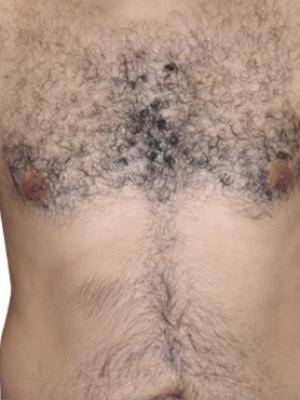
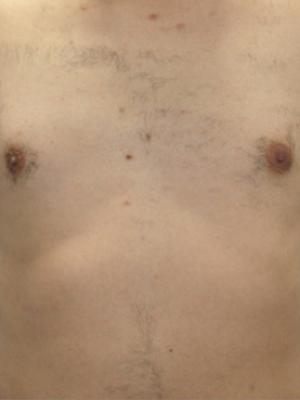
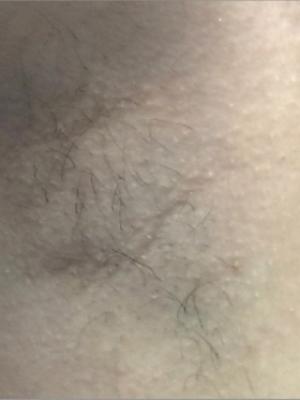

Send an Enquiry